Happiness: Does it Exist and Can You Have It? How?

The 10 happiest days as experienced by world citizens since 2008
Dec. 25, 2008 6.36 (Worldwide, happiest day of the last decade.)
Dec. 25, 2009 6.34
Dec. 25, 2014 6.30
Dec. 25, 2010 6.29
Dec. 25, 2015 6.28
Dec. 25, 2016 6.26
Dec. 24, 2010 6.26
Dec. 25, 2011 6.25
Dec. 25, 2017 6.25
Dec. 25, 2013 6.25
Dec. 25, 2015 6.25
Saddest days as experienced by world citizens since 2008
Oct. 2, 2017 5.77 (Mandalay Bay, Las Vegas)
May 23, 2017 5.83 (Manchester, England)
June 12, 2016 5.84 (Pulse Nightclub in Orlando)
July 7 & 8, 2016 5.87 (Police officers, Dallas)
Nov. 9, 2016 5.87 (Election U.S.)
Apr. 15, 2013 5.88 (Boston Marathon)
Aug. 12, 2017 5.88 (Unite the Right)
Dec. 14, 2012 5.88 (Sandy Hook)
June 25, 2009 5.92 (Michael Jackson)
July 13, 2013 5.92 (George Zimmerman)
July 14, 2013 5.92 (Cory Monteith)
Happiest and Saddest Years for the world since 2008
Happiest years 2009, 2010, 2015, 2016
Saddest years 2012, 2013, 2017
(All research is from both public and private number crunching related to millions of Twitter tweets, worldwide.)
Later in the article I’ll explain how the happiness cycles of the world influence your state of mind and the relationships you have.
Let’s begin with clients with a few personal anecdotes to illustrate then look at the latest science.
“Kev, I just want to be happy.”
Her name is Sunny and I didn’t think I was the right person to direct traffic for that request. She disagreed. She followed my work and felt I was one of the few who might be able to to. I took the challenge. A year later one of our most fascinating members had accomplished her outcome and it’s been consistently maintained for almost a decade.
Problem: When was the last time you heard anyone describe the definition of happy and precisely what it means to that person?
How about you? Can you answer these seemingly simple questions?
I don’t have a personal definition for happiness beyond life satisfaction and well being discussions. For this article I’ve done a lot of personal digging in addition to the typical research time I put in to something for you.
(This photo was taken on a warm but pleasant July 2018, day when I clearly remember “mixed emotions” as almost all days are for everyone on this planet. I was taking my recent girlfriend to the Fashion and Design Museum in London. Ah… that face is my real “happy face.” It’s important because most people associate a BIG smile with “happiness.” I never have. Most people who boast happiness as one of their qualities don’t wear a big smile most of the time. And that is one of the reasons I became fascinated with body language. Too often I was seeing people issue a false smile instead of experience a “felt smile.” This is felt. When I see this smile on people, my best guess is that they are at peace, at ease and I think to myself, “I suspect that person is happy.”)
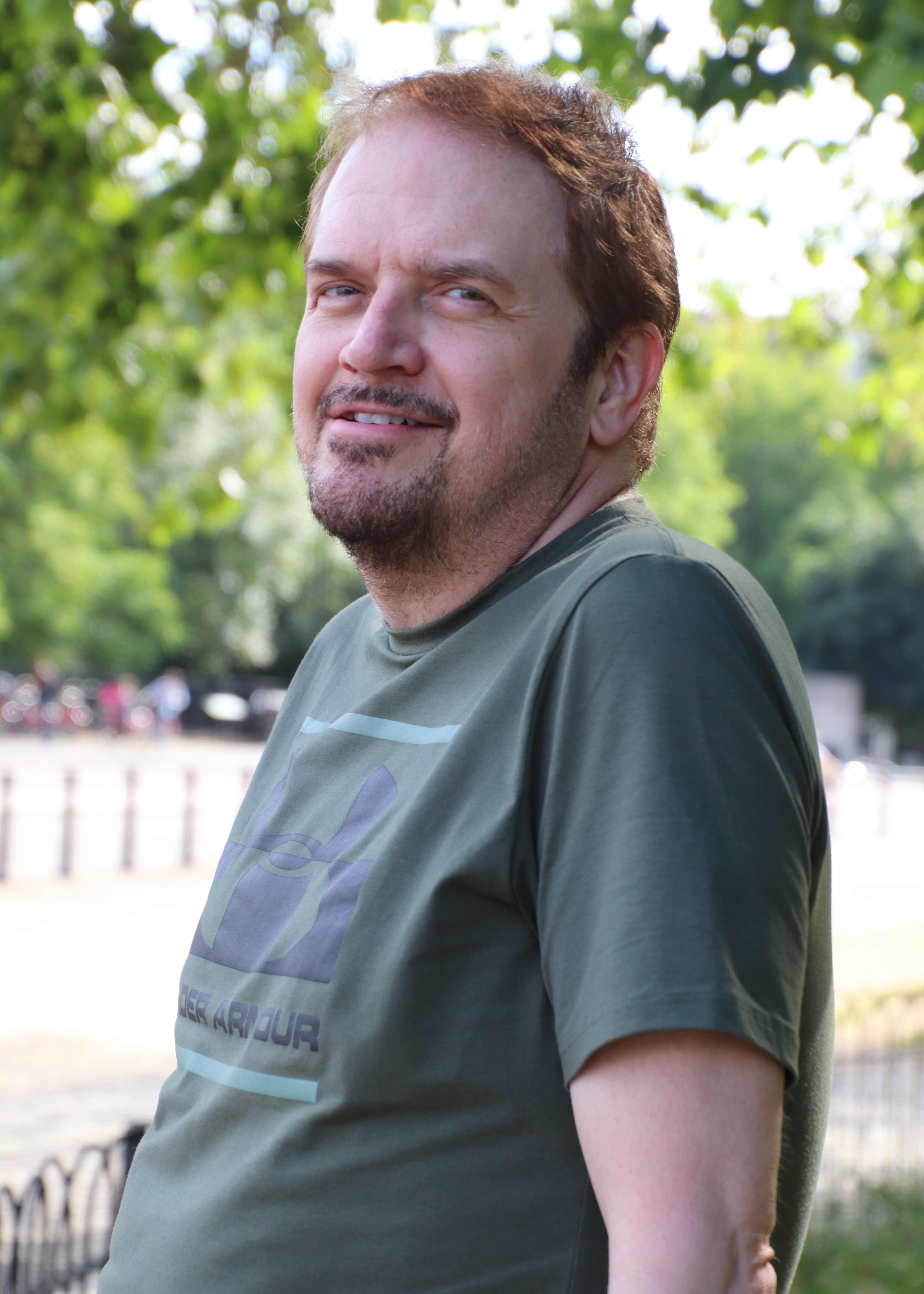
1) What is happiness? (An answer that has a definition that you and the people you love can measure.)
2) You know that if you want something you have to be able to describe it to another person. Describe how you acquire happiness.
3) Recent research shows two very different experiences as happiness and the research reveals you can probably only have ONE dominate in life. What makes you happy in the next moment or TODAY, will NOT likely be REMEMBERED as having been a happy time (I will explain in a moment). Now do you want to look back on your life and be able to say, “gosh I have a happy life!” or do you want the REST of TODAY to be happy for you?
For example. A woman has her first baby. The labor can be brutal regardless of what people tell you. I’ve observed two children being born live and in person and the “birth” appeared to be incredibly painful and something no one would intentionally experience again. What I watched was like a woman in hell. The first was 18 hours of labor were far from happy, regardless of how you define it.
BUT
In both cases you can fairly wonder if the person is “happy?” I can tell you that watching a person go from hell to apparent joy is quite a life changer. It makes you realize that people truly remember how THINGS FINISH far more than what REALLY HAPPENED in total.
Giving birth is an excellent experience in understanding happiness. I really believe that most parents are happy once that baby is OUT and healthy, along with the Mom being healthy and safe.
I want you to ask some women about their birth experiences. “Was is it a happy DAY?” (Half of the women you talk to, ask, “Was it an unhappy day” so language bias doesn’t occur), I’d appreciate it if you report back to me what you find.
Here’s the thing: If the woman experienced the same 18 hours of labor without having a living breathing child emerge, how would she define that day? “Happy” or “Unhappy?” (I’m going to guess unhappy but YOU tell me what you think about this.)
Some people look back at “the birth of their child” and think of the moment she held the baby and looked at it. Living hell turns to joy, is the only way I can honestly describe it from the observer point of view.
“Was the day your child born a happy day?”
Regardless of the answer you and I are on the same page that it is certainly MEMORABLE and most women probably look back and probably will say something like, “I was so happy when I held her in my arms.” Other women will likely say, “It was the hardest day I ever experienced.”
You tell me what you find out.
It is normal to feel two emotions or opposing feelings at the same time. This is what you know as “mixed emotions.” For the first time ever I shared recent research with an audience last month about just this, in Poland (Oct. 2018) in the photo below.
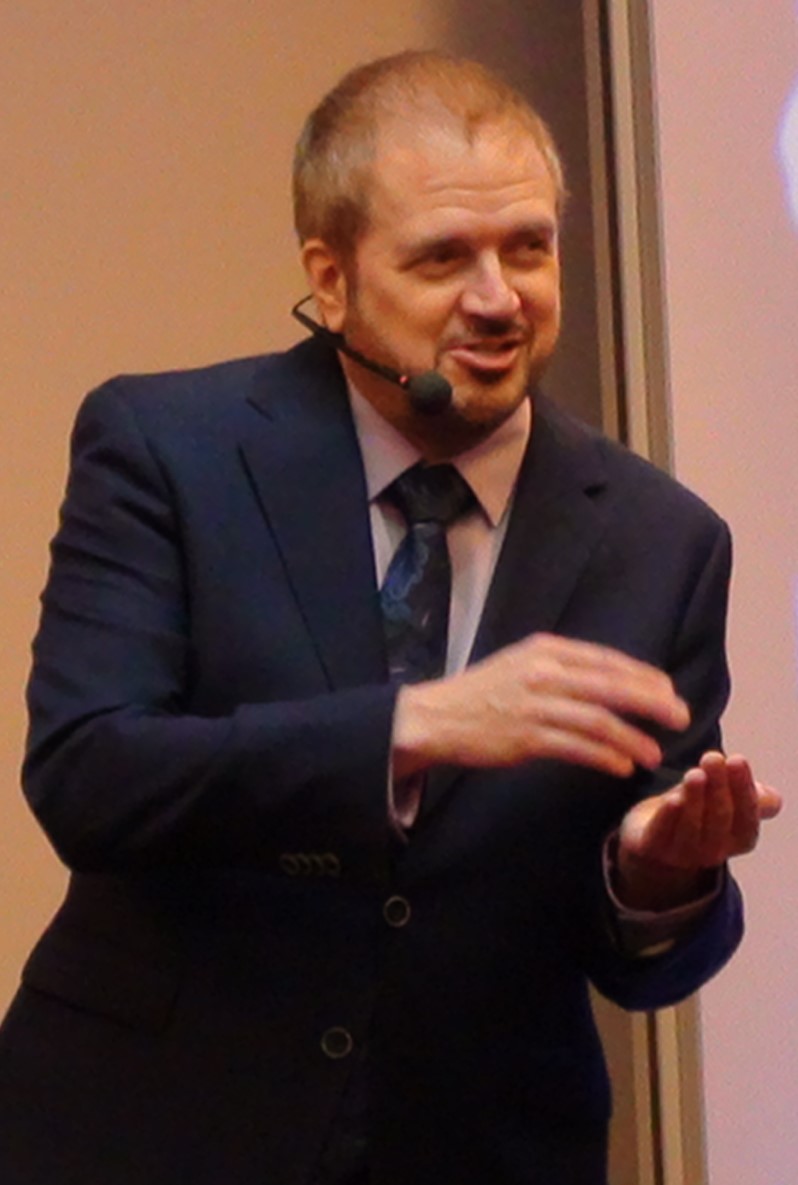
I discovered this year that the IDEA/FACT of “mixed emotions,” is NOT universal in people’s understanding. In other words, I’ve sat down and (talked to audiences) about the fact of mixed emotions and mixed feelings and explained that one of the reasons people get so “confused” about life is because you can easily feel love and hate, or love and apathy, in the same moment.
You can and almost certainly have easily felt pain and joy in the same moment.
You can and almost certainly have experienced fear and anger in the same moment.
Mixed feelings in any hour of the day, are the norm and NOT the exception.
IF you were to call happiness an emotion (and not many learned people do, but let’s just go with it) you certainly could experience that happiness is very nice, like joy, and that you can experience hatred or apathy in the same hour.
Now let’s look at the simplest example in the world to gain an understanding between the two types of happiness (happiness you experience NOW vs. happiness you remember and look back on as having been part of a happy life.)
When I was married I would typically sit on a Wednesday next to my wife and watch Survivor on TV. Survivor is not a show that makes you feel happy. The same is true for the TV show Mad Men. 24 with Keifer Sutherland. We watched every episode together. But no one walks away from Mad Men and feels “happy.” And finally, Game of Thrones, comes to mind. As you watch someone’s head come off or observe an incredibly life like death from medeval times, you certainly are not likely to be happy.
“Wow, that was good this week.”
A good shared experience but does it translate to remembered happiness?!
From the point of view of connection, such shared experiences where there is intense emotion being experience brings people TOGETHER. Negative emotions bond people together as do positive emotions. The intense or possibly negative emotions however are remembered with much greater emotional tagging.
In my anecdote, these experiences were ALL CHOSEN ON PURPOSE by two people to sit down and be together with the complete understanding that NO POSITIVE feelings would be generated during that hour and yet, it was important to the two people to do so.
Profound?
Do you look back and say “I was happy just to be with her/him and watch….” Most people do, but of course not everyone.
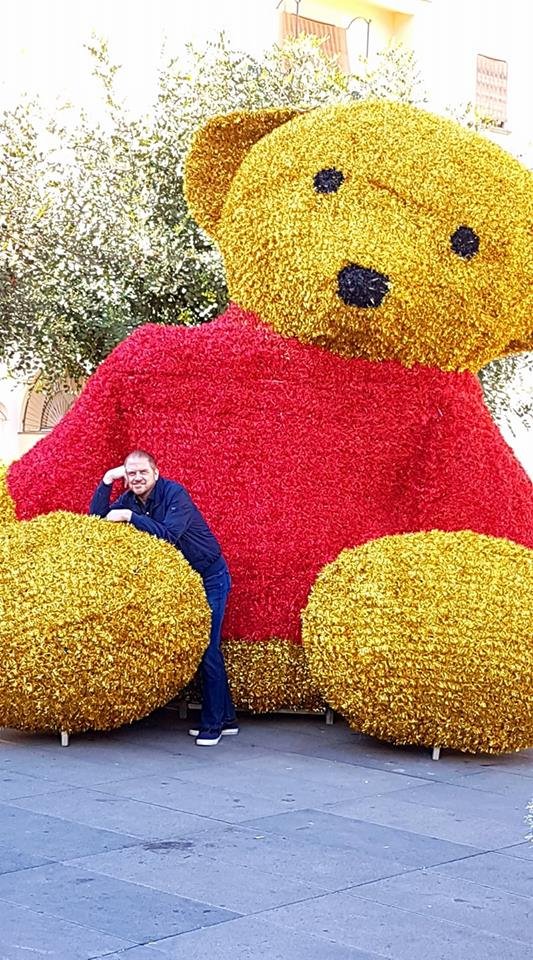
The photo above was taken in Sorrento, Italy one year ago this week. (Nov. 2017). One of the happiest days of my life, as I was with a special person, enjoying Sorrento, Italy which was in the Christmas spirit. I’d go back in a heartbeat.
It was on that same trip that we went to Pompeii which I experienced as one of the best days of my life as well, yet attempting to climb to the top of Mount Vesuvius was futile for me and added negative input to the emotional content for the day. Pompeii (Italy) was simply a jaw dropping experience. Our guide turned what could have been a macabre day into a fascinating set of stories, like a movie. He made us laugh. The context of course of Pompeii is not “happy” right? An entire city destroyed and frozen in time, on one day, by a volcano.
The decision to visit Pompeii was like the decision to watch Mad Men. It isn’t going to make you happy, though we had a lot of happy moments that day. No, they are chosen intentionally as desirable and important to experience, to learn, to understand the fleeting nature of life, to experience history in a time capsule.
“Were you happy?”
Now let’s shift the scenario. Again, when I was married we would intentionally watch Big Bang Theory on Thursday evening and laugh like crazy for 30 minutes.
I look back and can’t honestly say that it “made me happy” even though I KNOW I was happy in the moment…and in fact a lot of people report other feelings when remembering such experiences of watching a TV show with someone. Some people report GUILT for not having spent the time with children or parents for example.
If you laughed for 30 minutes certainly that should be considered “happy” in some people’s scope of definition.
But for others, no.
IN THE MOMENT you choose to walk Big Bang Theory or Game of Thrones or Survivor in the next hour. You might even say “because it will make me happy” but will you REMEMBER it as happy?
Now here is the PROBLEM WITH trying to be happy that NO ONE TALKS ABOUT.
John Gottman, the leading relationship therapist on the planet has told us with crystal clarity that “emotional bids” (many small attempts to experience connection of some kind) are important and you need to have a lot of them in the course of a day to make a relationship have a chance. (I’m paraphrasing and generalizing…this could take chapters to lay out specifics) Those emotional bids on average, trigger positive feelings. But they are so small that they are unlikely to be remembered 5 years from today. In other words, you’ll be happier today because of them, but you won’t look back with nostalgia and happy feelings.
“Want to watch Friends? House Hunters International? Ellen?” (Girlfriend at the time.)
“Of course.” (me)
Sometimes we’d watch two or three episodes back to back. We’d laugh. And IN THE MOMENT it felt like happiness, but a year later I doubt an average person would remember that as a happy experience without being cued.
I’ll cue you now. Think of the “happiest moments” of your life. Remember it? Walk through it as a movie? How did you feel? What were you doing? Were all the experiences of the day, moment positive or was there a mix?
Can I share one of mine?
Walking through Bellagio, Italy in April 2016 with Tia (recent girlfriend), I felt bliss. Bliss is past “happy” on my scale of feelings. Stopping at a church, lighting a candle, having lunch looking out at the Italian or Swiss Alps, over Lake Como and feeling the companionship, peace and absolute beauty of the moment.
There are video clips on my main page on Facebook that you can see me and I look like I’m on some kind of drug that creates joy and bliss. I truly was happy and in great magnitude. (Of course we still have no definition for this thing I believe I “truly was!”)
The context included the lack of responsibility, being with someone who triggered mostly good feelings, and an environment that was artistically beautiful.
But why was that remembered as happy and watching Big Bang is remembered as nice…just like Mad Men, Game of Thrones and Survivor?
There are so many variables that to say “this part made me happy” is truly NOT POSSIBLE for any human because we don’t have internal measurement devices as to WHY WE FEEL ANYTHING.
We only have guesses as to why we feel joy, bliss, love…however they are defined.
“Kev it’s because the person you were with and the experience the two of you had together in an idyllic scene.”
I believe that is probably partially correct. But I couldn’t prove it if I tried.
A predictable strategy, like a game plan to increase the odds of happiness (assuming we can define happiness) is something we can put together. But a formula that is likely to work every time? No.
People who tell you otherwise are simply wrong.
Here is an interesting CONFLICT of HAPPINESS for you that happened to me this summer.
Again, with my ecent girlfriend, Tia said, “We will go to the Ministry of Art” on Friday night.
I didn’t like the idea from the git go. I have NEVER painted a painting. I know I will be working. And of course I know I will end up there.
“Don’t worry they will have wine and you will have fun.”
I asked her, “Will this make you happy.” She affirmed that it would.
I thought, OK, well I will likely dislike this experience but creating happiness in others, especially this person, is a very high value for me.
Now let’s take her out of the story and run my experience which I remember very well.
1.) I was in the little studio with 15 other people who were going to all paint a basket of flowers. I have no experience at doing this. I draw stick people. It’s like throwing someone in the ocean a kilometer from shore and saying, “go swim back to shore.” I was anxiety ridden.
2.) I struggled with every step of the three hour period. I didn’t totally dislike the experience, but at the beginning there was that trapped feeling I often feel in places I prefer not to be…to be sure. As the experience moved through the night I was pleased that when I looked at my “painting” I noticed it was not a disaster and there was a small sense of satisfaction in having completed the process. The embarrassment didn’t yield quickly however.
3.) When we took our paintings home I mentally compared my painting with my girlfriends which was quite realistic looking. I felt incredibly weak inside.
4.) It’s now 5 months later and I feel “happy” about the experience. And today I wondered why! And perhaps it is because I feel that I needed the experience (looking back) and there was NO WAY to have known that when the date was originally set. In addition perhaps there is something to this happiness thing where contributing to another person being happy is reciprocal in nature.
Now figure THAT out. Going through hell but remembering it as happy. (Perhaps an incredibly simplified and easy version of childbirth many others have experienced?)
We do know that being in an experience with another person is enough to create a deeper sense of identification with that person.
And then there is this question:
“Are you happy?”
For about 15 years of living with my ex wife, (There is only one ex wife, for the record) I would ask perhaps weekly, “Are you happy?” My journals seem to indicate I asked more often but let’s just go with weekly.
The reason for the question being part of a life script, was I had an astonishingly amazing Mother who often seemed to be happy, but because of insane circumstances, and I speak for myself only, though I suspect my siblings would in large part agree, “happiness” was not a common feeling growing up. Rare like a hurricane hitting Chicago…exactly.
I have recalled moments of positive feelings as a child. I was always happy (joyful) when I would see my grandparents arrive from 1000 miles away knowing that my brothers and I would be leaving with them for 2 – 8 weeks. That I remember and I remember feeling, joy. I also remember feeling “happy” (engaged really) playing my Mom a game of Scrabble. But for what most people call “happiness” it just wasn’t there.
So I would ask my young wife, “Are you happy?”
And the vast majority of the time she would say yes, if she was; or “why are you asking” if, I suspect, she was not.
I stopped asking this question of pretty much anyone after about 2000 once I realized that the word was like saying, “are you syzygy?” People don’t have a definition of happiness so it’s darned difficult to go with a ‘yes’ or ‘no’ answer as meaning much of anything. And I discovered that the “yes” response didn’t necessarily predict a “good day” or a “good week.”
Sometimes yes, sometimes no.
And then there is the problem of “good…”
Did you have a good time?
Did you have a good flight?
Was the ball game fun?
Did you have a good trip?
The person has no accurate way of answering the question. If the trip FINISHES on a sour note the TRIP is typically remembered as BAD by most humans. And if the trip STARTED on a sour note, the TRIP as a whole is typically remembered as BAD.
Consider this: Do you know what percentage of hours must be good for a “time” to be considered good? I don’t either. It’s because we’ve NEVER considered it.
Consider this: Do you know what makes for a good flight as you respond to the person asking you? Of course not. Neither do I.
Consider this: What has to happen for the ball game to have been fun. This is interesting, because if the Cubs didn’t win, I didn’t enjoy going. (This is Zeigarnik yes?) I can have enjoyed the first hour of the game but because of the result, I would have been lying had I said I had fun, if the Cubs lost.
Finally consider this: What constitutes a good trip? For me it’s not critical for the trip to end well in contrast to the ball game scenario! If I’m gone two weeks and no one dies on the trip, even the terrible ending can still allow for positive “happy” memories of the weeks on the trip.
The Zeigarnik Effect simply means humans remember the beginning and ending of most things they remember, and very little of what happened in between.
Additionally, it’s not just what the person remembers, the fact is that people evaluate ENTIRE EXPERIENCES/VACATIONS/TRIPS/JOBS/DATES based upon how it began and/or how it ended.
I didn’t know what happiness looked like when I got married. When people talked about “happiness” I had no frame of reference. It was the same as talking about art, chemistry or biology.
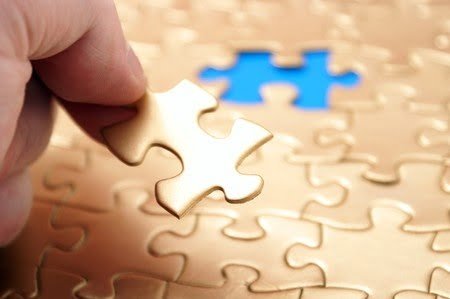
This Happiness Puzzle is not easy to grasp in part because you can’t even SEE ALL THE PUZZLE PIECES!
Example: The most common happiness problems hundreds of clients I’ve worked with have told me about are very similar to the personal experiences I’ve shared with you.
“What can I do so you will be happy?”
This is a question I no longer ask.
Why? Because as we have just seen, people don’t actually know which kind of happiness they want (Happiness of the next moment and in general a moment by moment basis vs. happiness of nostalgia they will remember later) and how it will be experienced into the future.
There is no question that whatever happiness is, it’s going to rise and fall with the waves of the people and environment around you.

“What are things, people or experiences that you believe cause you or help you be happy?”
I want you to test out this question. First answer it for yourself. Then ask a few people so you can see how they will respond.
The fact is people never really think about these things day to day so, “What else” and “What else” is going to be really important.
Then after you ask that question of the people closest to you, I want you to ask, “Can you tell me five times you were happy in your life?” (Then listen for 10. You’ll learn far more accurate information from this question than the first.
But accuracy or recall (they may or may not really have a hierarchical list of happy experiences and weren’t aware of it if they do) and in the moment happiness are going to not always go hand in hand.
What matters is that you ask these questions. It shows you care and that you aren’t asking the oft difficult to answer question, “How can I make you happy?”
The Magic of Happiness Question
“If you go out five years in the future and look back all the way to today, but not further back than today, what might you see that was a happy experience that made life better?”
That’s a pretty good question. The person won’t be biased from their personal history and they will be nudged to telling you from a future perspective what made them happy starting at today, but no earlier.
THAT “LIST” is very important.
You could print it out and put it on the fridge if you both look back on the next five years.
It is not a set of instructions or directions. It is list of future memories of things yet to come.
It’s fiction like A Christmas Carol, but loaded with strong reminders that amount to a formula for this
person.
The photo below is a day when I was happy, and remember I don’t use this word lightly, after all I don’t have a definition. Like every other day in the world had some challenges thrown in that could make this be remembered as a frustrating day. But that’s not what I experienced in this moment or in my recollection of the day at the Amalfi Coast in Italy one year ago.
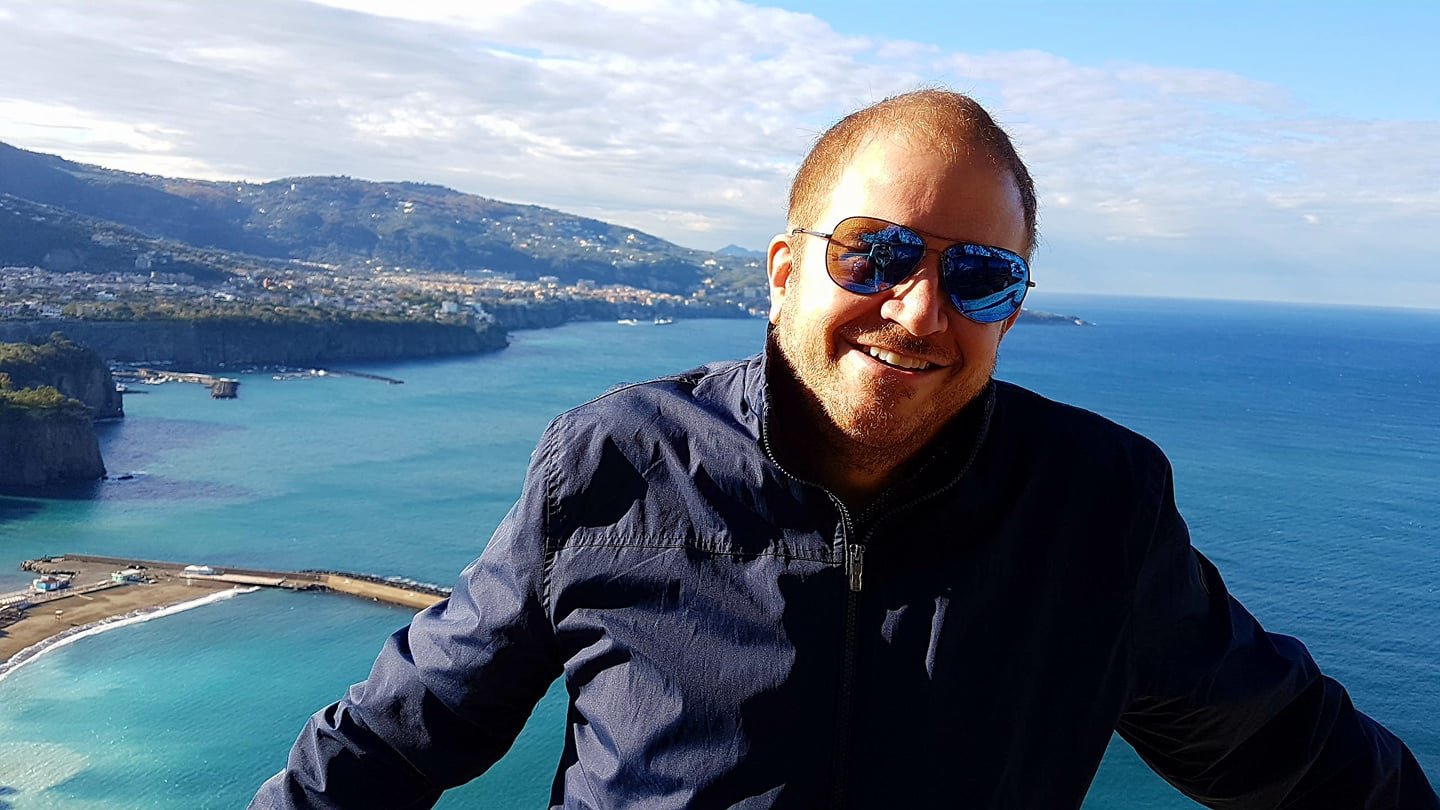
You will recall this article began with a list of the happiest days of the year, as reported by world citizens (over the last decade) followed by the unhappiest days of the last decade as reported by world citizens.
Here’s what is learned when I analyzed the data from hedonometer.org.
1) Happiness and sadness are cyclical for the WORLD, not just individuals. The WORLD cycle goes up and down. When you look at the decade long charts that assembled millions and millions of Twitter tweets this fact is crystal clear. Some YEARS are better than other years and the cycles are predictable, so far.
2) Seizing the moment can cause people to be very happy but the fact is that the happiest days of the year WORLDWIDE are Christmas and Christmas Eve followed by the Valentines Day, Thanksgiving (U.S.) and Mothers Day. Nothing else was even close. No world events made people across the world happy. HAPPINESS predictably occurs inside PLANNED EXPERIENCES.
3) Someone will find out why Thanksgiving on the American calendar makes people in other countries happy. I’m not going to do that digging. I simply know that it is a fact. The same is true for Mothers Day and Valentines Day. I suspect it’s memetic but we’ll leave that for another time.
People can talk all they want to about being spontaneous but the fact is that humans react spontaneously to terrifying or disgusting events like shootings, exoneration of the guilty and the death of their heroes. If spontaneity were a trigger for happiness then it would emerge from the collected data. It wasn’t there. Sure you can be happy by saying, “hey let’s go…” and then doing it, but abundant research shows that PLANNING something fun or cool is enjoyed MUCH MORE than something that is spontaneous.
4) The happiness generation from December 24 and 25, worldwide, is unparalleled, in cause and occurs regardless of whether the world is in an uptrend or downtrend. Two days after Christmas, everything goes back to the norm.
Tactic for Increasing The Elusive Happiness of those Around You
Whatever the definition, massive data crunching reveals the words most closely associated with happiness are all variations of laugh (laughter, laughing, etc.) then “happiness, joy, excellent and happy.” And those are the top 10. Use these words when you can.
When I train speakers, I make sure they know there are words they should not say from the stage because of the pain they cause to the listeners. (Words like cancer, murder, kill, terrorist, rape, die and suicide) Avoid these words when communicating with others. You will be pleased that you did.
So just what is happiness anyway?
I don’t know. Is it well being? Life satisfaction? The dopamine rush of having sex (or any of the other things that cause the same rush!)?
I’ve read two dozen books on happiness. Most texts but some religious tomes by the Dali Llama for example. My personal experience is only my experience and not very important in the scope of the world. But if you think about Christmas, Thanksgiving, Mothers Day and Valentines Day, there are a few common threads when you match them with the words of “happiness” from thousands of people.

Love
Giving
Appreciation
Advanced Planning,Purpose and Intention
And a woman is far more often than not, at the center of all of it.






















